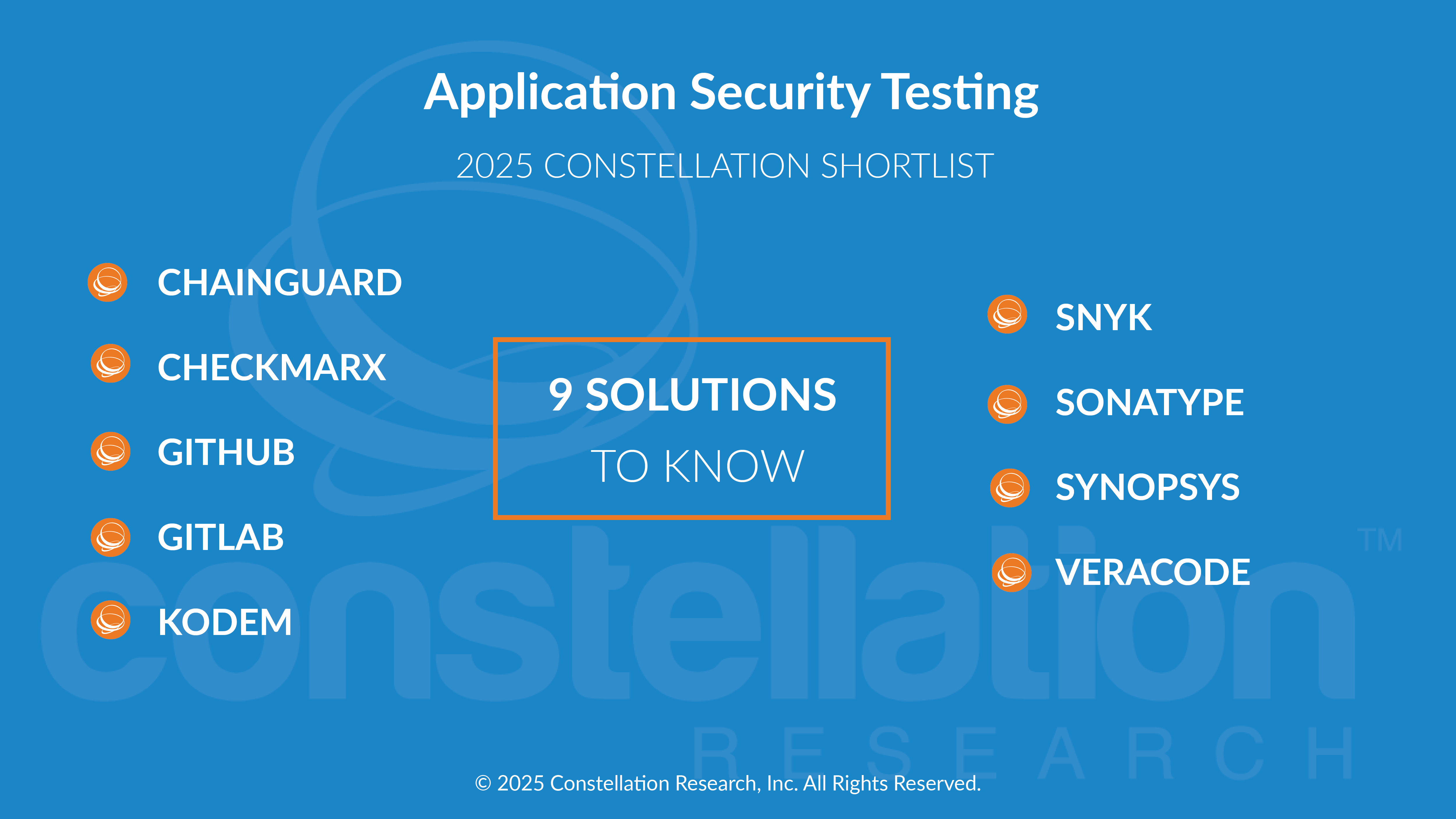Executive Summary

About This ShortList
In today's fast-paced development landscape, security can no longer be an afterthought. The rising frequency and sophistication of cyberattacks necessitate proactive security measures throughout the development process. Data breaches are costly and can damage brand reputation. Stringent data privacy regulations like GDPR and CCPA further emphasize the need for robust security testing. Dynamic cloud environments require continuous security testing to ensure vulnerabilities are identified and addressed swiftly.
Code defects, insecure coding practices, and misconfigurations create numerous vulnerabilities that traditional testing methods might miss. As the usage of co-pilots and shift to cloud-native development accelerate, Application Security Testing (AST) has emerged as a critical practice within the DevSecOps methodology. Early identification and remediation of vulnerabilities significantly reduces the chance of costly and damaging security breaches. By integrating security into the development process, AST leads to more secure and reliable applications, reducing rework and downtime. Many industries have strict data security regulations, and AST helps organizations meet these requirements by ensuring applications are secure by design.
The global AST market is projected to reach a staggering $15+ billion by 2027, reflecting the growing demand for secure software development.
Threshold Criteria
Constellation considers the following criteria for these solutions:
- Static Application Security Testing (SAST): Analyzes source code for potential vulnerabilities without executing the application.
- Dynamic Application Security Testing (DAST): Scans running applications to identify vulnerabilities exploitable during runtime.
- Interactive Application Security Testing (IAST): Combines SAST and DAST for a comprehensive analysis of both code and runtime behavior.
- Software Composition Analysis (SCA): Identifies and assesses security risks associated with open-source and third-party libraries used in your application.
- API Security Testing: Secures APIs, a critical component of modern applications, against vulnerabilities like injection attacks and data breaches.
- Fuzzing: Tests applications with unexpected inputs to uncover vulnerabilities that traditional tests might miss.
- Infrastructure as Code (IaC) Security: Scans Infrastructure as Code (IaC) configurations for potential security misconfigurations.
- Mobile App Security Testing (MAST): Specifically designed to detect vulnerabilities in mobile applications.
- Continuous Integration/Continuous Delivery (CI/CD) Integration: Integrates seamlessly with your CI/CD pipeline for automated and continuous testing throughout the development process.
- Reporting and Remediation: Provides detailed reports on identified vulnerabilities and recommends remediation steps for developers.
The Constellation ShortListâ„¢
Constellation evaluates more than 25 solutions categorized in this market. This Constellation ShortList is determined by client inquiries, partner conversations, customer references, vendor selection projects market share and internal research.
- Chainguard
- Checkmarx
- GitHub
- GitLab
- Kodem
- Snyk
- Sonatype
- Synopsys
- Veracode
Frequency of Evaluation
Each Constellation ShortList is updated at least once per year. Updates may occur after six months if deemed necessary.
Evaluation Services
Constellation clients can work with the analyst and research team to conduct a more thorough discussion of this Constellation ShortList. Constellation can also provide guidance in vendor selection and contract negotiation.

